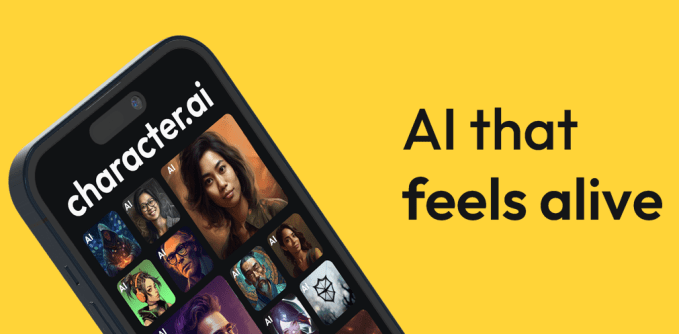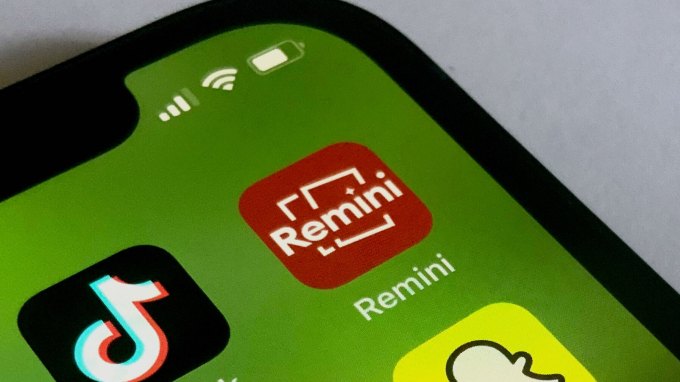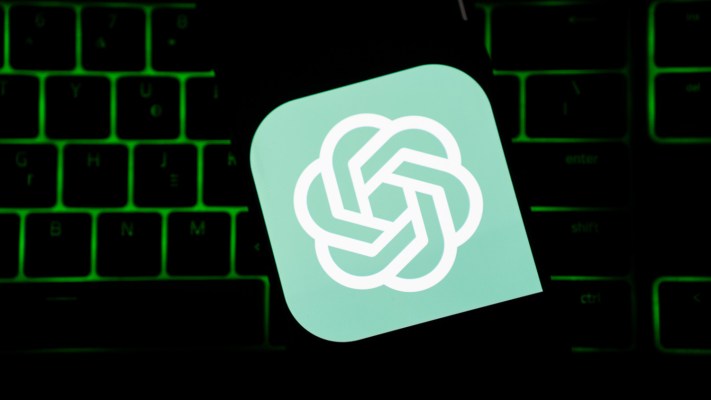ChatGPT, the AI-powered chatbot from OpenAI, far outpaces all other AI chatbot apps on mobile devices in terms of downloads and is a market leader by revenue, as well. However, it’s surprisingly not the top AI app by revenue — several photo AI apps and even other AI chatbots are actually making more money than ChatGPT, despite the latter having become a household name for an AI chat experience.
Since its launch on mobile devices in May of this year, ChatGPT’s downloads and revenue have continued to grow. In its first month, when the app was available on iOS only, it topped 3.9 million downloads, which grew to 15.1 million by June, according to an analysis of the AI app market by Apptopia. Then, following a slight dip in July, ChatGPT grew again to top 23 million downloads as of September 2023.
In addition, ChatGPT’s usage on mobile devices has similarly grown from just over 1.34 million monthly active users in May to now 38.88 million as of September.
Perhaps even more importantly, ChatGPT’s mobile app is outpacing much of the AI chatbot market by consumer spending, which grew from $352,929 during the month of its launch to reach $1.98 million as of September and nearly $2.39 million as of October 24, where the current data set ends.
But it’s not the top app by revenue in the AI chatbot space. “Chat & Ask AI” and “ChatOn — AI Chat Bot Assistant” both pulled in more money in September at nearly $3.38 million and $2.11 million, respectively. Other apps are also close on ChatGPT’s heels with “AI Chatbot — Nova” and “AI Chatbot: AI Chat Smith” pulling in nearly $1.44 million and $1.72 million in September, respectively.
As ChatGPT has a lot of competition for users’ time on mobile, there are now at least five AI chatbot apps that have topped 2 million downloads in September, including several generically named apps like “Chat & Ask AI,” “ChatOn — AI Chat Bot Assistant,” “AI Chatbot — Nova,” and “AI Chatbot: AI Chat Smith” with 2.44 million, 2.02 million, 3.1 million, and 2.9 million downloads, respectively. These apps appear to be capitalizing on App Store SEO — meaning they’re ranking well for terms users might search for, like “AI Chat” and the like. While that’s still far short of ChatGPT’s 23 million last month, it does demonstrate a market for AI apps that extends beyond OpenAI’s creation.
In addition, the a16z-backed chatbot startup Character.ai, which allows users to interact with and create their own AI personas, is in the running with 2.39 million downloads as of September.

Image Credits: Character.AI
What’s more, many AI chatbot apps also have an active user base. For instance, Poe, the chatbot app from the Q&A site Quora, had over 1.18 million monthly active users (MAUs) as of September, compared with ChatGPT’s nearly 39 million.
The generic apps have a following — meaning they’re not just buying downloads, they’re also retaining their users. “Chat & Ask AI” had 9.7 million MAUs in September, “ChatOn — AI Chat Bot Assistant” had 3.5 million MAUs, followed by “Genie — AI Chatbot AI Assistant” (2.3 million), “AI Chat — Chatbot AI Assistant” (2.17 million), “AI Chatbot — Nova” (8.55 million), and “AI Chatbot: AI Chat Smith” (8.48 million). Character.ai also had 5.92 million monthly active users that month.
Then there are the AI photo apps which use AI technologies for editing effects, or for personalized images of yourself.

Image Credits: Remini
Though operating in an adjacent space to ChatGPT, some of these apps are giving the AI assistant a run for its money across metrics like downloads, usage and in-app purchase revenue.
With 23 million downloads in September, ChatGPT still leads the pack, but apps that go viral — like “Remini” — have come close-ish to ChatGPT’s installs. “Remini,” for example, topped 16.17 million downloads last month, months after its AI headshots feature blew up on TikTok. “PicsArt AI Photo Editor” also had a solid September with nearly 16.05 million installs.
“Remini” also topped 6.2 million monthly users last month, while “FaceApp,” which includes some AI filters, had more than 6.4 million. Other apps including “PicsArt” (4.27 million MAUs), “Wonder — AI Art Generator” (4.77 million MAUs) and “Facetune AI Photo/Video Editor” (5.22 million MAUs) were seeing high usage, too.
Quite a few AI photo apps are attracting greater revenue via in-app purchases, compared with ChatGPT, as well. There could be several factors at play here, however. For starters, ChatGPT also sells its ChatGPT Plus premium subscription via the web, where many people use the chatbot assistant. AI photo apps, meanwhile, often acquire the bulk of their revenue via users’ smartphones as they interact with the photos stored on users’ Camera Roll. Plus, many apps “go viral,” gaining them their 15 minutes of fame, which sometimes extends into longtime usage or ongoing subscriptions as users explore their other features.
While ChatGPT pulled in $1.98 million in mobile consumer spend as of September 2023, apps including “Remini,” “PicsArt,” “Wonder,” “BeautyPlus — AI Photo/Video Edit,” “FaceApp” and “Facetune: AI Photo/Video Editor” made more at roughly $6.22 million, $4.27 million, $2.08 million, $4.78 million, $6.42 million and $5.22 million, respectively.
However, the popularity of AI photo apps may be shorter-lived than ChatGPT, in some cases. For instance, Lensa, which went viral last year, had 23.44 million downloads in December 2002. That’s fallen to 413,814 monthly installs as of September 2023 and 739,000 monthly actives, down from nearly 24.9 million in December. It also pulled in $739,000 in mobile consumer spend last month, down from a high of over $24 million, Apptopia’s research finds. While the current numbers are still respectable, they do show there’s a tendency for users to switch between viral AI photo apps after some time as new features are marketed and developed elsewhere.
